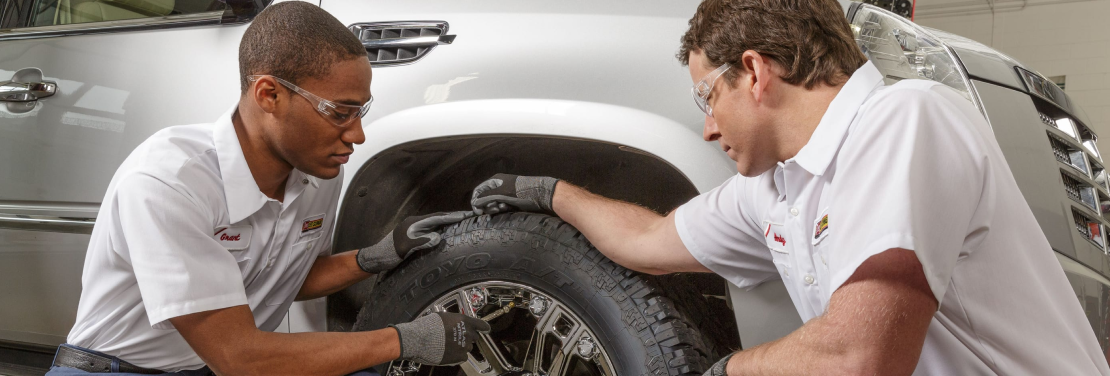Economical Discount Tires Morris IL: Unequalled Prices, Quality Guaranteed
Economical Discount Tires Morris IL: Unequalled Prices, Quality Guaranteed
Blog Article
Tire Solution: Understanding Tire Stress Monitoring Equipments
Recognizing Tire Pressure Monitoring Systems (TPMS) is an important aspect of keeping optimum lorry efficiency and safety and security on the road. With developments in automobile technology, TPMS has actually come to be a standard attribute in modern-day lorries, giving real-time details on tire pressure degrees.

Relevance of TPMS
The significance of Tire Pressure Monitoring Systems (TPMS) hinges on their capability to improve car security and performance with real-time tracking of tire pressure levels. Maintaining the correct tire pressure is essential for guaranteeing optimal handling, braking, and overall safety and security of a vehicle. TPMS gives vehicle drivers with prompt responses on any kind of overinflated or underinflated tires, enabling timely adjustments to be made.
Components of TPMS
Sensing units are commonly situated in the tire shutoff stem or affixed to the wheel setting up, where they gauge tire stress and transmit information to the control component. Some progressed TPMS versions additionally present the real tire stress analyses for each tire, providing chauffeurs with real-time information to guarantee ideal tire performance and safety. By keeping track of tire pressure continuously, TPMS helps prevent accidents, reduces tire wear, and boosts gas performance, making it a vital part for automobile security and performance. morris tire and alignment.
Sorts Of TPMS

On the various other hand, indirect TPMS counts on the vehicle's wheel rate sensors to keep track of tire pressure. This system discovers underinflation by contrasting the rotational rates of the wheels. Indirect TPMS is much less expensive than straight TPMS, as it uses existing sensors within the lorry.
While straight TPMS offers more precise readings, indirect TPMS is less complex in style and generally calls for less maintenance. Both systems have their benefits and restrictions, and the selection in between them commonly depends on variables such as cost, lorry make, and personal preference. Recognizing the distinctions in between these two sorts of TPMS can help automobile owners make notified choices relating to tire upkeep and security.
TPMS Upkeep Tips
Conduct routine checks on the tire pressure degrees and contrast them with the TPMS readings to ensure they are consistent. Throughout tire turning or replacement, make sure that the TPMS parts are taken care of very carefully to stop any type of potential damages. If the TPMS alerting light illuminates on the dashboard, resolve the problem quickly by checking the tire stress and the general system for any mistakes.
Benefits of Proper Tire Stress
Preserving proper tire stress, as highlighted in TPMS Maintenance Tips, is critical for enjoying the various advantages connected with optimal tire stress levels. Among the primary advantages of preserving the correct tire stress is improved gas effectiveness. When tires are properly inflated, there is much less rolling resistance, bring about much better gas economic climate. Additionally, appropriate tire pressure makes sure even tire wear, prolonging the lifespan of the tires and advertising more secure driving conditions. With the appropriate tire pressure, lorries also have far better handling and traction, particularly in adverse climate condition. This can improve total driving performance and security for the driver and guests. Additionally, keeping optimum tire pressure can add to a smoother and extra comfortable experience by reducing vibrations and sound triggered by underinflated tires. To conclude, the advantages of correct tire stress exceed just tire long life; they encompass boosted gas efficiency, enhanced safety, far better car performance, and overall driving convenience.
Verdict
Finally, recognizing tire pressure monitoring systems (TPMS) is crucial for maintaining optimal tire stress and ensuring lorry safety and security. By recognizing the significance of TPMS, knowing with its parts, recognizing the various kinds offered, sticking to correct upkeep pointers, and understanding the advantages of preserving proper tire pressure, vehicle drivers can boost their driving experience and extend the lifespan of their tires. Proper tire stress is crucial to reliable and secure car operation.

Report this page